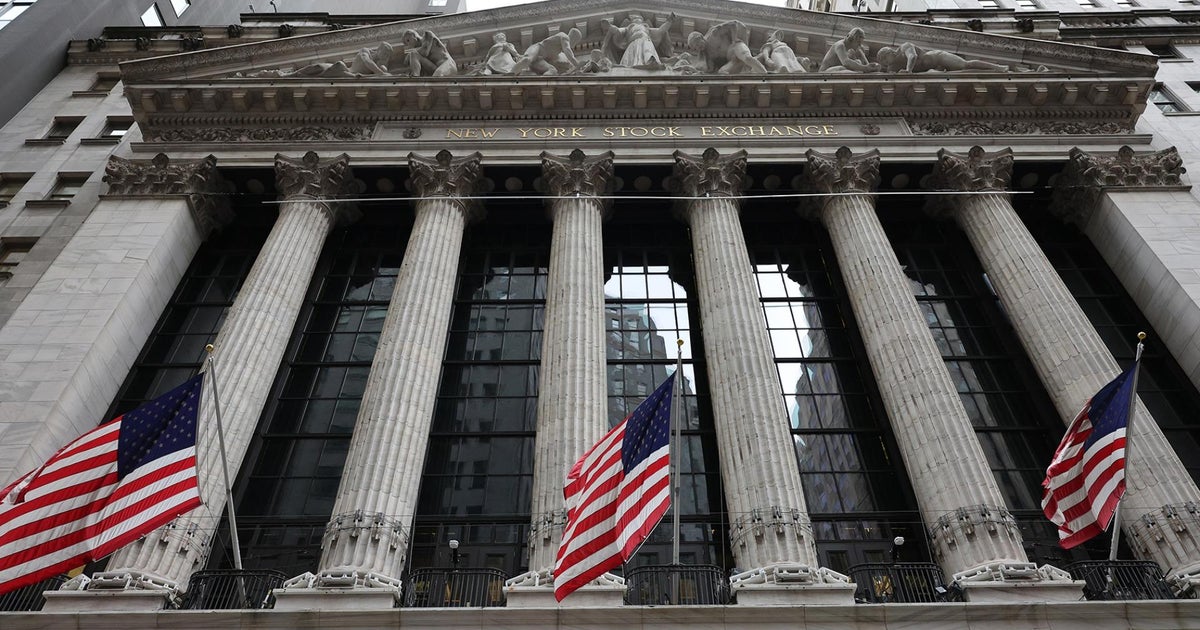Stocks climbed on Wall Street Friday after new government data showed U.S. employers continued to hire at a steady pace in April despite rising economic uncertainty.
The S&P 500 was up 90 points, or 1.6%, as of 2:07 p.m. EST, putting the index on track for a ninth straight day of gains. The Dow Jones Industrial Average rose 598 points, or 1.4%, and the tech-heavy Nasdaq gained 1.8%.
The gains were broad. Technology stocks were among the companies doing the heaviest lifting. Microsoft surged 2.6% and Nvidia rose 2.1%. Banks and other financial companies also made solid gains. JPMorgan Chase rose 1.3% and Visa jumped 1.8%.
Employers added 177,000 jobs in April. That marks a slowdown in hiring from March, but still topped analyst forecasts
The latest job figures don’t yet reflect the effects on the economy of President Trump’s across-the-board tariffs against America’s trading partners. Still, the latest payroll gains allay concerns about an imminent recession, according to some analysts.
“There is nothing to complain about here,” Carl B. Weinberg, chief economist at High Frequency Economics said in a research note. “You cannot find any evidence of a nascent recession in these figures.”
The release on Wednesday of ADP’s employment numbers for April, showed private employers added 62,000 jobs for the month, far fewer than the 134,000 jobs that had been forecast by economists, according to FactSet. Also, the U.S. economy shrank at a 0.3% annual pace during the first quarter of the year, according to GDP data from the Commerce Department on Wednesday. Together, the two reports raised alarm bells among analysts.
For now, healthy consumer spending is keeping the economy on track, analysts said.
“Although consumers have been shifting how they spend their money, they’re still spending, and that can keep powering the U.S. economy forward. However, that engine could stall if the labor market deteriorates, so investors should keep a close on jobless claims,” Bret Kenwell, U.S. investment and options analyst at eToro, said in a report.
“The April jobs report may reassure investors that the labor market is holding up, giving them more confidence that the economy can hold up too,” he added.
Ongoing tariff fears
The job market is being closely watched for signs of stress amid trade war tensions. Economists are worried about the impact that stiff new U.S. tariffs on imports from China and other key trading partners will boost inflation, reduce corporate profits and slow broader economic growth.
The current round of tariffs and the on-again-off-again nature of Mr. Trump’s policy has hindered planning for businesses and consumers. Companies have been cutting and withdrawing financial forecasts because of the uncertainty over how much tariffs will cost them and how much they will squeeze consumers and sap spending.
Hopes remain that Mr. Trump will roll back some of his tariffs after negotiating trade deals with other countries. China has been a key target, with tariffs of 145%. Its Commerce Ministry said Beijing is evaluating overtures from the U.S. regarding the tariffs.
In a statement from China’s Commerce Ministry on Friday, an unnamed ministry spokesperson was cited as saying that Beijing had taken note of various statements by senior U.S. officials indicating a willingness to negotiate over tariffs.
“At the same time, the U.S. has recently taken the initiative to convey information to the Chinese side on a number of occasions through relevant parties, hoping to talk with the Chinese side. In this regard, the Chinese side is making an assessment,” the statement read, with global markets rising soon after.
Investors had a relatively quiet day of earnings reports following a busy week. Exxon Mobil fell 0.3% after reporting its lowest first-quarter profit in years. Rival Chevron rose 0.3% after it also reported its smallest first-quarter profit in years.
Falling crude oil prices have weighed on the sector. Crude oil prices in the U.S. are down about 18% for the year. They fell below $60 per barrel this week, which is a level at which many producers can no longer turn a profit.
Treasury yields rose in the bond market. The yield on the 10-year Treasury rose to 4.27% from 4.22% late Thursday.
contributed to this report.

